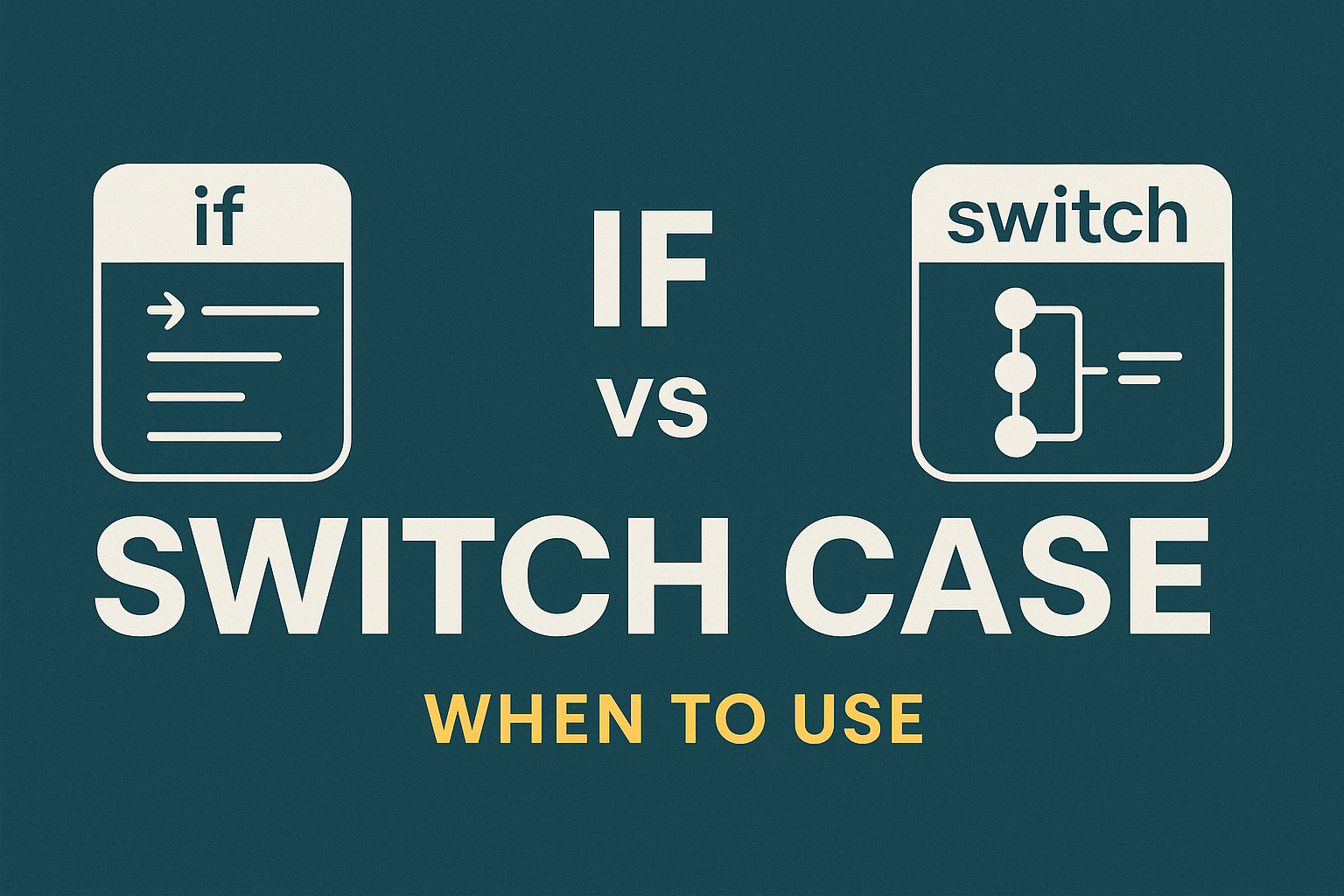IGEDE MIARTA 👋
A Passionate Full Stack Developer 🖥️ & WEB Designer having 5 years of Experiences over 20+ Projects.

A Passionate Full Stack Developer 🖥️ & WEB Designer having 5 years of Experiences over 20+ Projects.

In programming, decision-making is a critical part of logic. Two of the most commonly used conditional statements are if and switch case. Understanding when to use each can help you write cleaner, more efficient, and more readable code.
The if statement is used to execute a block of code based on a condition that evaluates to true.
Use if when:
//Examples
$score = 80;
if ($score >= 90) {
echo "Grade A";
} elseif ($score >= 80) {
echo "Grade B";
} elseif ($score >= 70) {
echo "Grade C";
} else {
echo "Grade D";
}The switch statement is best used when comparing a single variable against multiple specific values.
Use switch when:
//Examples:
$day = "Monday";
switch ($day) {
case "Monday":
echo "Start of the week";
break;
case "Friday":
echo "Almost the weekend";
break;
case "Sunday":
echo "Rest day";
break;
default:
echo "Just a regular day";
}Choose if when your logic is complex or involves ranges.
Choose switch case when you're dealing with multiple discrete values and want your code to be more readable.
Both are powerful tools—knowing when to use them makes you a better programmer.



